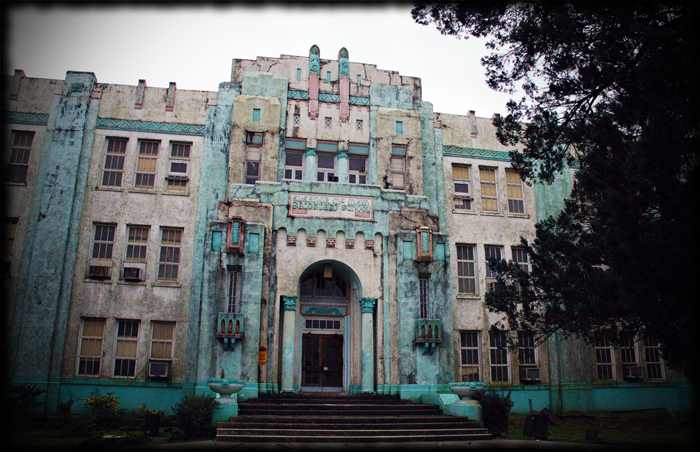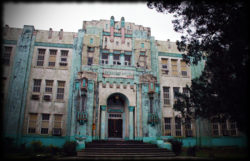Eleanor McMain
Eleanor McMain was a settlement house worker and progressive reformer in early-twentieth-century New Orleans.

Courtesy of Flickr
Eleanor McMain Secondary School. Holland, Rob (Photographer)
As a settlement house worker and a progressive reformer, Eleanor Laura McMain profoundly affected early twentieth-century New Orleans. The head resident of Kingsley House for thirty-three years, McMain was eulogized as “the Jane Addams of New Orleans.” The first American settlement house had been established in 1886. Serving working-class neighborhoods in urban areas, more than 400 settlements operated in 1910, and Kingsley House became the largest and most influential settlement in the American South.
Eleanor Laura McMain was born on March 2, 1868, on a farm in East Baton Rouge Parish. Her parents were Jacob West McMain and Jane Josephine Walsh McMain, and Eleanor was one of their eight children. Having arrived from Philadelphia in the 1840s, her father became a prosperous planter and served in the Confederate Army, but lost much of his wealth during the Civil War. Eleanor moved with her family to Baton Rouge, where her father became dean and secretary of Louisiana State University. Reared in a household that encouraged reading, Eleanor attended a series of private schools. After teaching school in Baton Rouge, in the late 1890s she relocated to New Orleans, where she trained in the Free Kindergarten Association. This pioneering organization sponsored by city Episcopalian churches relied on innovative methods for teaching preschool children. In 1900, the directors of Kingsley House, a settlement house in the Irish Channel section of the city, chose her as head resident. To prepare, she spent a summer studying the settlement house movement at the University of Chicago. She also studied at two settlement houses, Chicago Commons and Hull House.
With McMain’s leadership, Kingsley House served as a community center for its working-class neighborhood. The settlement house provided a medical clinic as well as an array of educational opportunities, including a kindergarten, a night school, vocational classes, a circulating library, and the city’s first vocational school. In addition, concerts, dances, athletic events, clubs, annual summer camps, and the city’s first playground offered recreation, especially to children. Although the settlement house had been established by Trinity Episcopal Church, McMain transformed it into a nonsectarian facility to reach out to the entire community, regardless of religious affiliation.
McMain made Kingsley House a focal point for progressive reforms. The settlement hosted the initial meetings of the Woman’s League in 1905. As a founder and the organization’s first president, McMain called for an end to inadequate housing, unsanitary conditions, child labor, long work days, and deplorable schools. While working to remedy these conditions, she played a pivotal role in halting the yellow fever epidemic of 1905. With volunteers from Kingsley House, she went door to door, instructing local residents about preventive health measures. McMain’s activism also included participating in the Anti-Tuberculosis Association, chairing a Tenement House Commission, testifying before the state legislature about child labor, and collaborating with Sophie Newcomb College to open a school for social workers at Kingsley House.
During World War I, McMain trained Red Cross nurses, and the New Orleans Times-Picayune awarded her its 1918 Loving Cup for community service. She helped organize the New Orleans Council of Social Agencies and served as its president. She died May 12, 1934, and was buried in Magnolia Cemetery in Baton Rouge.
